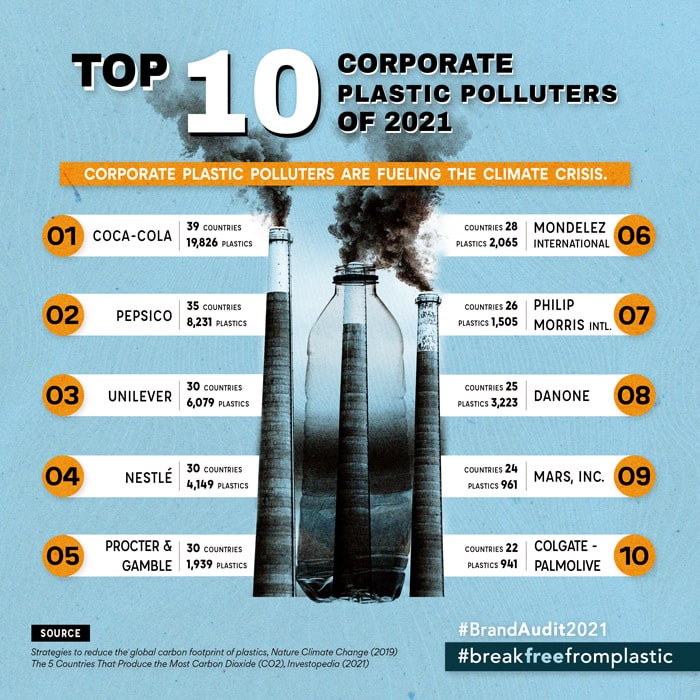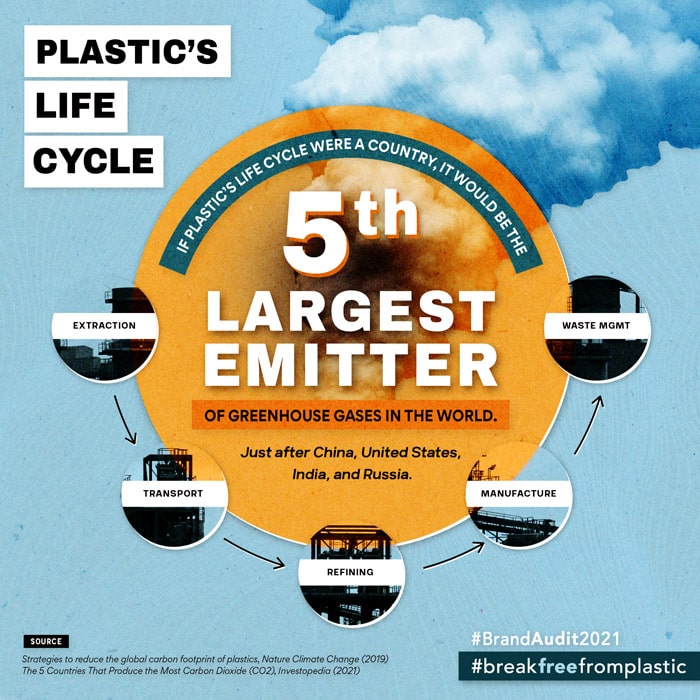Unilever was found to be the world’s third top plastic polluter in the
2021 Brand Audit. Our volunteers found Unilever branded trash polluting 30 countries.
Unilever produces over 700,000 metric tonnes of plastic packaging every year according to self reported data to the Ellen MacArthur Foundation. Almost all of this is single-use plastic, and they don’t report what percentage of reusable packaging they use.
Plastic is a major climate polluter. If the entire global lifecycle of plastic were a country, it would be the
fifth largest emitter in the world.
19% of Unilever’s products are packaged in multilayered sachets or pouches. Sachets are polluting the Global South in enormous quantities. They cannot be recycled and are worthless to the informal waste pickers who collect waste to be recycled. Sachets are such a problem for Unilever that they have begun to
burn them in cement kilns.
Burning plastic in cement kilns is incredibly dirty for the climate and for the health of communities living close to the kilns. Burning one tonne of plastic emits
three tonnes of CO2 and releases toxic chemicals.
While polluting the planet with single use plastic, Unilever greenwashes their image with false solutions to the plastic crisis. A recent report ‘
Missing the Mark: unveiling corporate solutions to the plastic crisis’ found Unilever investing in 31 false solution projects, and only 11 projects focused on plastic reduction and reuse.
The consumer goods sector’s dependence on single-use plastic packaging is helping enable the fossil fuel industry’s move to expand plastic production according to research by
Greenpeace.
The global climate movement has demanded that polluters be removed from the UN climate talks with an
open letter to the organisers.

